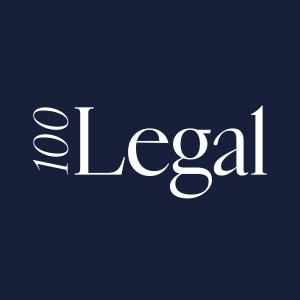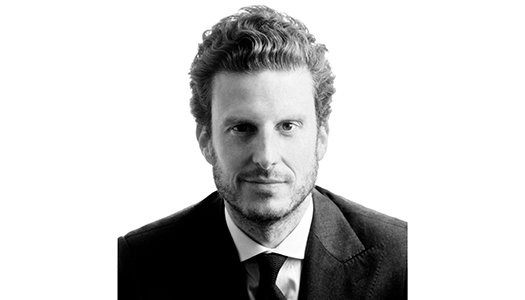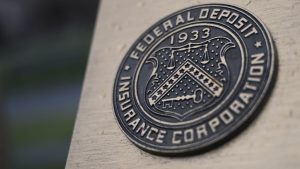Swiss courts ruled on 78 serious cases of economic crime in 2022, ten more than in 2021, according to a study by KPMG consulting firm with actual numbers of cases are meanwhile likely to be much higher, since many go unreported.
What are the most common types of white-collar crimes committed in Switzerland?
Most of the key financial crime offences are contained in the Swiss Criminal Code (“SCC”) and include Misappropriation (art. 138 SCC), Unauthorised obtainment of data (art. 143 SCC) or personal data (art. 179novies SCC), Fraud (art. 146 SCC), Computer Fraud (art. 147 SCC), Criminal Mismanagement (art. 158 SCC), Bankruptcy and debt collection felonies or misdemeanours (art. 163 to 170 SCC), Forgery of a document (art. 251 SCC), Money laundering (art. 305bis SCC) and Bribery of Swiss public officials (art. 322ter SCC) and of foreign public officials (art. 322septies SCC), Bribery in the private sector (art. 322octies and 322novies SCC), and Granting and acceptance of an advantage (for Swiss public officials) (art. 322quinquies and 322sexies SCC).
Other pieces of legislation in specific legal fields contain other criminal offences, such as Insider trading and Market manipulation, governed by the Financial Market Infrastructure Act (“FinMIA”), Cartels and unlawful agreements affecting competition, governed by the Federal Act on Cartels and other Restraints of Competition (“CartA”), Unfair Competition, governed by the Unfair Competition Act (“UCA”), and offences related to personal data in accordance with the Data Protection Act (“FADP”).
In line with corporate criminal liability principles (art. 102 SCC), companies may be held liable for certain white-collar crime offences (particularly money laundering, financing of terrorism, and bribery offences), if they failed to take all necessary and reasonable measures required to prevent such offences. Managers and directors of a company may also be held personally liable for the offences committed within the company under certain conditions.
When are wrongdoings civil matters and when are they considered crimes?
Civil matters commonly involve disputes between private parties, such as individuals, businesses, or organisations (for instance, contract or property disputes) and are usually resolved through civil courts, where the main objective is to compensate the injured party for any damages occurred or harm suffered.
Criminal offences are actions and behaviours that breach criminal laws and are prosecuted by the state authorities (police and public prosecutors). A conviction may result in various forms of penalties, such as imprisonment, probation, or fines. In some cases, a claim may simultaneously have civil and criminal implications. For instance, if someone commits fraud (a criminal offense), the victim may initiate civil litigation to recover damages in addition to any criminal charges brought by the state.
What type of financial crime cases have you been involved with?
I have represented clients (as plaintiffs or as defendants) in a variety of cases, mainly related to Criminal Mismanagement, Fraud, Unfair Competition and Data Protection.
Who commits white-collar crimes? Are there certain patterns and how are financial crimes detected?
There is no definite pattern to be drawn as to who commits financial crime offences. Criminal Mismanagement, Misappropriation, and Fraud represent a significant part of offences that are prosecuted in Switzerland. The COVID-19 pandemic also offered new opportunities for fraud offenders and there has been an increase in cyberattacks, phishing scams, and CEO frauds.
Financial crimes can be detected in various ways. Usually, an investigation is triggered by a complaint to the police or public prosecutor’s office from an individual or an authority. Then, the public prosecutor formally initiates the investigation if the prosecutor believes that there is reasonable suspicion that an offence has been committed, based on the information gathered by the police, the supporting documents and information of a criminal complaint sent directly to the prosecutor, or the prosecutor’s own conclusions.
If an offence is committed within regulated financial entities such as banks, securities dealers, or insurance companies, the Swiss Financial Market Supervisory Authority (“FINMA”) might have the competence to conduct investigations and file a criminal complaint.
Financial institutions also have an obligation to report suspicious activities in relation to certain offences to the Money Laundering Reporting Office Switzerland (“MROS”), which is Switzerland’s central money laundering office and functions as a relay and filtration point between financial intermediaries and law enforcement agencies. Under the provisions of the Anti-Money Laundering Act, MROS receives and analyses suspicious activity reports in connection with money laundering, terrorist financing, money of criminal origin or criminal organisations and, where necessary, forwards them to the law enforcement agencies for follow-up action.
What is your advice to a company who suspects that they are a victim or potential victim of a financial crime in Switzerland and how should a company best manage a crisis and prevent a scandal?
A company must handle the situation promptly and appropriately to reduce potential harm and legal consequences, for instance by (i) conducting a thorough internal investigation to gather as much information and evidence as possible, (ii) engaging legal counsel, (iii) taking appropriate disciplinary actions against the individuals involved (termination of employment for instance), (iv) in certain circumstances, implementing corrective measures (compensation of victims), (v) mitigating risk, for instance by cooperating with authorities and taking efficient measures to prevent similar incidents in the future (establishing internal policies, controls and procedures for instance), (vi) depending on the circumstances, providing transparent communication to maintain trust in and within the company, and (vii) training employees and implementing a culture of accountability, integrity and transparency within the company.

Aerial view of Leman lake - Geneva city in Switzerland
White collar crime poses enormous dangers to companies, resulting in financial losses, reputational harm, and legal ramifications. It is critical to implement strong methods for preventing and detecting white collar crime in the workplace to protect your firm. What are the best practices and strategies for mitigating the dangers of white-collar crime and protecting your organisation?
All companies should have a clear and efficient game plan to protect themselves, in accordance with each company’s specific industry, size, configuration, etc. Legal counsel should be engaged regularly to assist (and not only once the problem arises). Internal control frameworks, regular risk assessment, background checks of employees, clear, regular and consistent reporting of key issues and risk factors, incident response procedures (for cyberattacks for instance), crisis management procedures, adopting a code of conduct and policy, team and employee support and training (in ethics and compliance for instance), review of insurance policies and coverage, are some of the measures companies can implement to mitigate the risks.
ABOUT:
Sébastien Collart is a founding partner at 100 Legal. Dually qualified in Switzerland and as a Solicitor in England & Wales, Sébastien’s expertise particularly covers corporate and business law, M&A, fintech & DeFi, economic criminal law, commercial litigation, and real estate. Sébastien has extensive experience advising entrepreneurs and businesses of all sizes. He assists various individuals and companies, both Swiss and foreign, on national and international transactions in numerous fields of business.
100 Legal is a boutique law firm with core expertise in corporate, real estate, private clients and dispute resolution, with offices in Geneva, Sion and in the UAE. As long-term trusted advisors, negotiators, and dispute resolution lawyers, 100 Legal provides a simple and actionable approach to all its clients’ legal and business challenges, covering a large variety of industries.
Sébastien Collart
100 Legal
Rue Charles-Bonnet 4, CH-1206, Geneva
Tel: +41 22 319 33 33
100-legal.com

Published by: www.lawyer-monthly.com























